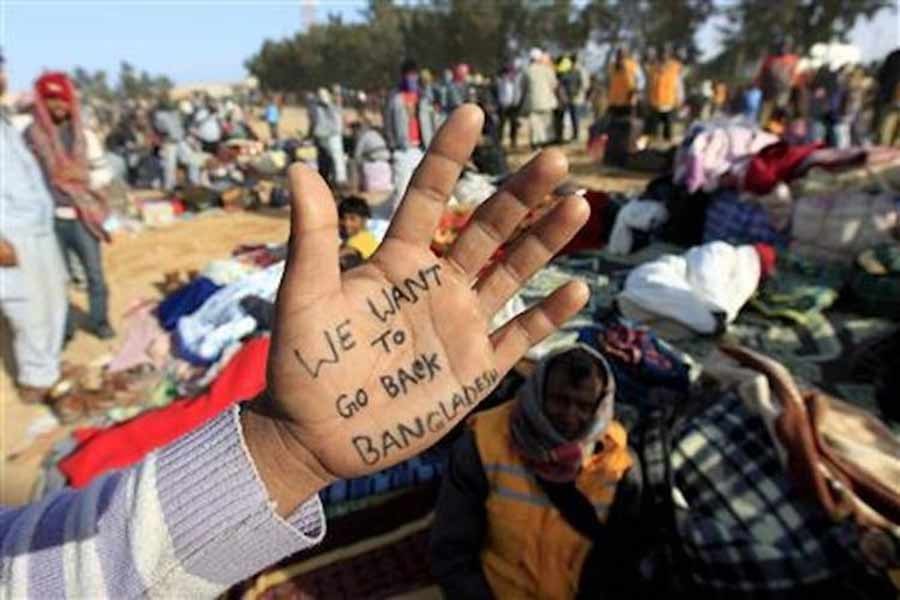Many of the thousands of human trafficking cases that are stuck in Bangladesh’s justice system are being hampered by a lack of evidence from foreign authorities and scant financial support for victims, a study said on Monday.
About three-quarters of the 159 trafficking victims interviewed by NGO Justice & Care said they could not afford to pursue their cases, while others cited frustration at delays in getting justice and inadequate witness protection mechanisms.
While 75 per cent of the 354 trafficking cases analysed in the research involved Bangladeshis being trafficked abroad, just 4 per cent of the legal files included evidence from overseas authorities.
“This (study) has given us insight on the gaps that are fettering the prosecution process,” said Tariqul Islam, country director at the anti-slavery nonprofit, which works with the Bangladeshi government to tackle trafficking.
“From an evidence perspective, it tells us how to make cases stronger to convict traffickers,” he added.
Bangladesh - one of the world’s largest exporters of manpower - has a backlog of about 4,500 human trafficking-related cases that are pending trial, according to government data. The nation has been striving to clear them.
The Southeast Asian nation, which has a population of about 165 million people, is also home to nearly a million Rohingya refugees from Myanmar.
Local authorities have improved their efforts to combat trafficking, but more work is needed to increase convictions and investigate cases involving Rohingyas, a US report that ranks nations on their anti-trafficking standards said in 2020.
Bangladesh opened special courts last year to tackle cases under its 2012 anti-trafficking law, but only one trafficking conviction was made - down from nine in 2019 - as the coronavirus pandemic disrupted proceedings.
Jahangir Alom, a senior officer from Bangladesh’s home ministry, which heads the nation’s anti-trafficking work, said the study was part of the government’s strategy to expedite trafficking cases by identifying the obstacles.
“This is a draft, there will be more work done,” he said.
Monday’s report said almost 90 per cent of victims had difficulty understanding court procedures and found that nearly 85 per cent of the accused traffickers were known to the victims, often as relatives or neighbours.
The study recommended training investigative officers in how to use international treaties to secure foreign evidence and urged authorities to aid witnesses.
It also urged authorities to compensate low-income victims and witnesses, who often depend on daily wages and lose money if they have to attend court.


